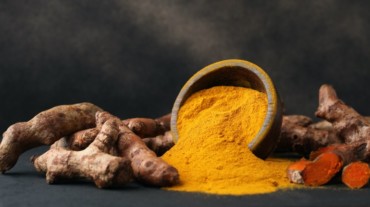
Backache is one of the most common symptoms or problems for which people visit the doctor. Almost all of us, and the elderly, have experienced backache either for a short period or as a chronic problem. Since this is a very common problem, there are many remedies to alleviate the condition Exercise has always been the mainstay management of back pain. It can not only cure but also prevent development of backache due to muscle strengthening. However, the role of diet to prevent back pain cannot be undermined.
The diet we eat plays a role in our well-being. Food determines how our body can sustain injuries and prevent any sort of chronic pains like knee and back pain.
A diet planned well in our young age today may determine how well old age problems will be at bay.
Today’s generation is focusing more on convenience food over traditional healthy diet, and it is a matter of concern. This not only causes health related problems but also causes more incidence of back pain at a later stage.
To prevent back pain, an anti-inflammatory diet and diet rich in proteins is recommended.

According to the National Institute of Nutrition, half of your plate should be filled with vegetables and fruits daily. A rainbow-coloured plate with fruits and vegetables, is high in polyphenols and bioflavonoids which are high in anti-inflammatory properties. These help to protect the body and reduce inflammatory processes which increase pain.
Green leafy vegetables and cruciferous family such as broccoli, cauliflower, cabbage and spinach are rich in vitamins A, C, and K, which are antioxidants known to relieve inflammation. They also have compound called sulforaphane, which blocks an enzyme that causes joint pain and inflammation.
Carrots, beets and pumpkin are root vegetables rich in beta carotene, which is a powerful antioxidant. Adding these to one’s diet can reduce knee and back pain. Consume carrots as a part of your salad intake regularly.
As far as fruits are concerned, apples, pineapple, berries, cherries, grapes, and citrus fruits (lemon, oranges) have flavonoids and antioxidants which help to ease inflammation caused by knee and back pain. Don’t peel off the skin of the fruit, if you want to derive maximum benefits.
Ensure regular consumption of tomatoes as they contain lycopene, a highly potent antioxidant.
Select Topics of your interest and let us customize your feed.
PERSONALISE NOW
Research shows that a diet rich in omega-3 fats as compared to omega-6 fats reduces the inflammatory response of a high-fat meal. Include food rich in omega-3 fatty acids, include fish, a handful of nuts seeds (almonds, walnuts, flax seed, chia seeds, etc), olive oil, mustard oil in your diet daily. Intake of nuts strengthens bones, thereby cutting the likelihood injuries to the knee or the back.
Some evergreen kitchen spices and herbs such as ginger, cinnamon and cayenne can be used to decrease inflammation. Turmeric is known to have the compound curcumin, which is an effective cure for any joint-related pains.
Remember to add black pepper in your diet when consuming turmeric, to aid absorption of curcumin. Ginger and garlic have also showcased anti-inflammatory properties, which can even help relieve arthritis or joint pains. Never overdo on spices as they may damage your gastro-intestinal lining.

A well-balanced diet with an adequate amount of proteins should be taken. This helps in development and strengthening of the muscles which reduce the incidence of back pain.